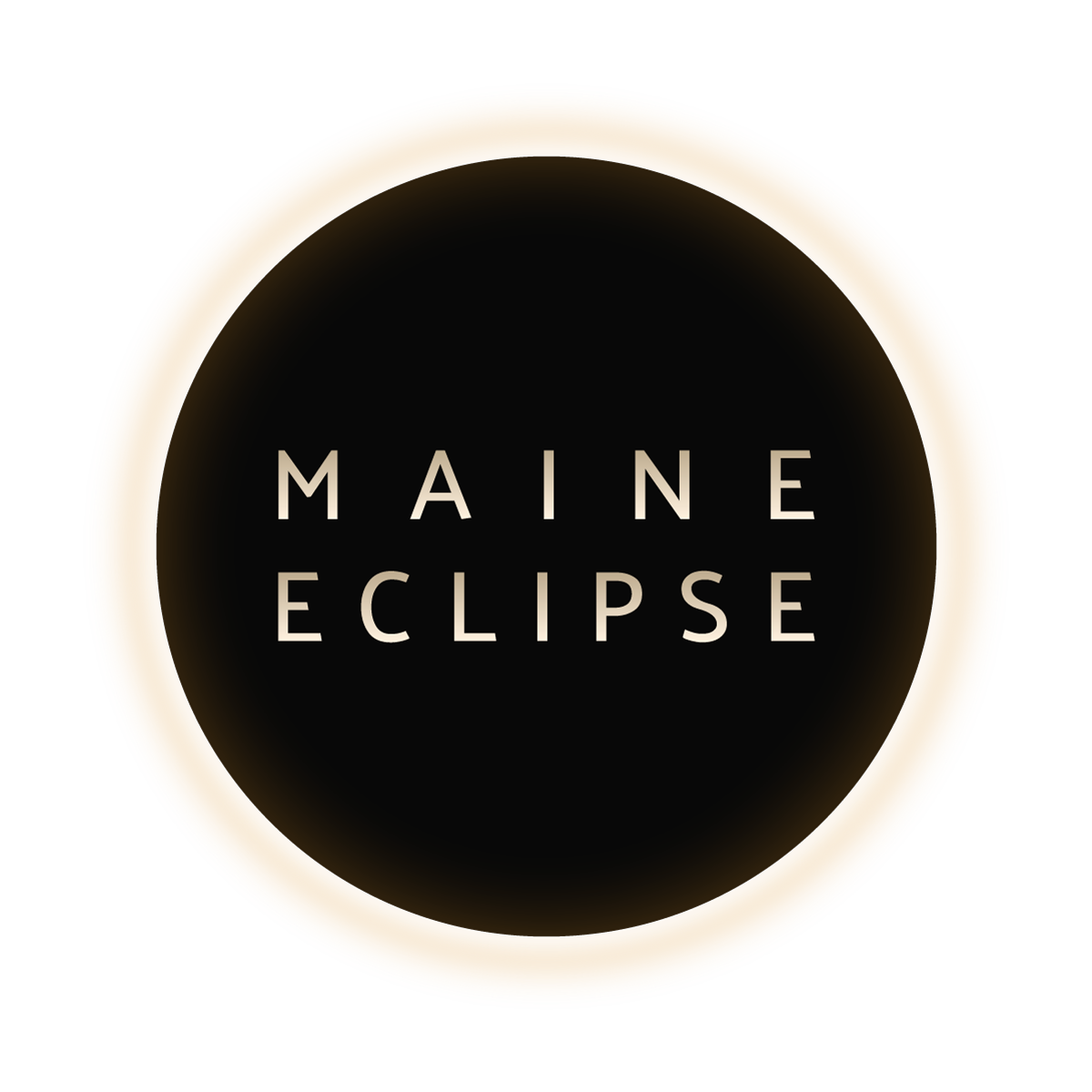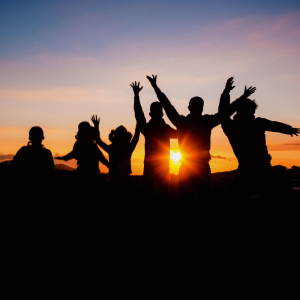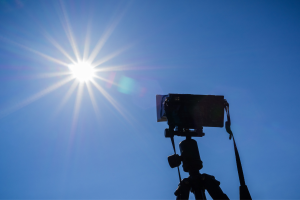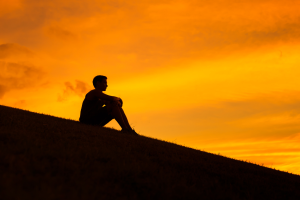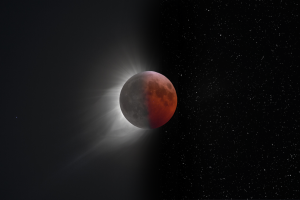Let’s face it – the Sun is bright! It is so bright that we instinctively look away from it any time it happens to enter our field of view. The brightness of the Sun’s light is one problem, but as is often the case, the things you can’t see can also be really bad for you.
Dr. Ralph Chou, is world-renowned within the eclipse community as the world’s leading expert on eclipse eye safety, and he wrote the ISO standard that all eclipse glasses have to conform to.
Dr. Chou has told stories of people who, despite all the warnings to the contrary, simply decided they were going to stare at the Sun during an eclipse. Knowing full well that they were taking an almost certain chance of damaging their eyes, these folks decided they were going to do it anyway. Some of them got lucky, and did not do permanent damage to their eyes. But in a couple of cases, Dr. Chou related to us the fact that an ophthalmologist looking at these patients’ retinas could actually see an outline of the partially-eclipsed Sun burnt into them. Using a diagram based on the burn patterns in their retinas, it was actually possible to determine the time of day the patient had chosen to stare at the partial eclipse!
The light from the Sun is very bright, and it can indeed burn a spot in your retina that may eventually heal – or it may not. A condition known as Solar Retinopathy can occur if proper eye protection is not used, and according to the experts this condition does not always heal itself.
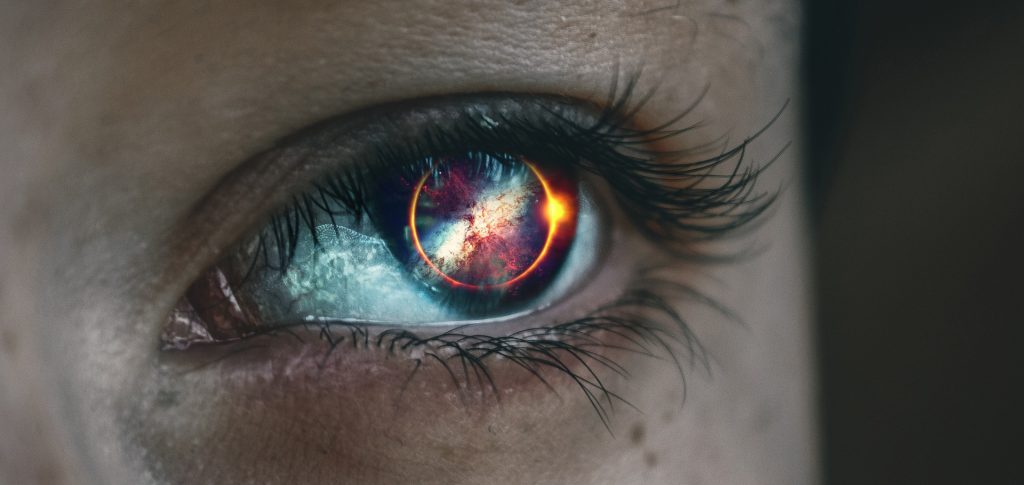
Maybe the best analogy we like to use (though it’s not perfect) is a sunburn on your skin. Of course, the bright sunlight by itself can make your skin feel warm, but we all know to use sunblock to protect our skin from the damaging UV rays of the Sun, if we want to avoid sunburn and increased chances of eventual skin cancer. Your retinas are highly sensitive to light in the blue and UV part of the spectrum as well, and it is not altogether wrong to consider the damage that the Sun’s rays do to your retinas as kind of the same type of damage that a sunburn does to your skin. UV is bad, and blue light is also bad for your retinas! And there is no such thing as sunblock ointment or spray for your eyes! (DO NOT use regular skin sunblock in your eyes! That will also cause serious damage!)
Your skin feels warm as is it getting burned, but in general you don’t notice the full effect of the damage that’s been caused until later that day or the next morning, when you realize how much Sun you got. At that point, you have to let your skin heal – But at least it will heal (unless you have a truly bad burn, in which case you would need a doctor’s care.) Your retinas may not be able to heal themselves, though, and this could mean you have eye problems or even blindness for the rest of your life!
And what is even worse, according to Dr. Chou, is your retinas have no pain sensors! You cannot tell that you are injuring your retinas while you stare at the Sun, because it doesn’t hurt. You won’t know anything about the damage until it is very much too late. This underscores the great danger that is present, and it is why we have stated on the site so many times to use proper, certified eye protection at all times when viewing the partial phases of the eclipse!
How do you avoid skin sunburn? You either stay out of the Sun altogether, or you use sunblock liberally, as directed by the manufacturer of the sunblock.
How do you avoid damaging your retinas when viewing an eclipse? You either don’t view the eclipse at all (and that’s no fun!), or you use a PROPER method of blocking the Sun’s dangerous rays while you look. This does NOT mean you can use sunglasses, either! Sunglasses may block out some of the bright light of the Sun, but they will not block all the invisible UV and blue rays that will painlessly do great damage to your retinas. You MUST use filters that block all the dangerous light – and that means ISO-certified eclipse glasses.
These inexpensive cardboard filters shaped like eyeglasses may look like toys, but their lenses are made of very special material that has been tested and certified (if you get them from reputable outlets) to block ALL forms of solar radiation that can harm your eyes.
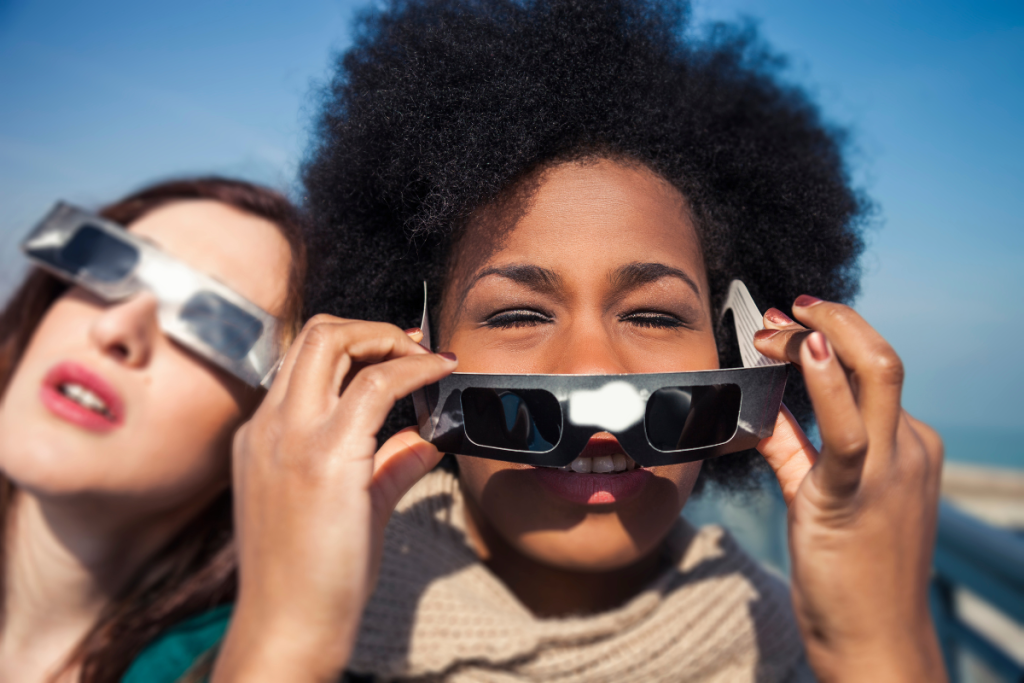
Why is it dangerous to look at the Sun during an eclipse? It’s no more dangerous than at any other time – it’s ALWAYS dangerous to look at the Sun when it’s not in total eclipse; it’s just that usually, people don’t want to look at the Sun – it’s too bright! But during an eclipse, everyone wants to grab a peek at what’s going on. The temptation to grab “just a quick glance” can be very strong, but don’t do it! If you want to safely watch the eclipse, you simply need to use certified eye protection to be able to look at the partially-eclipsed Sun.
But, is it dangerous to look at the totally-eclipsed Sun? No! In fact, during totality is the ONLY time during an eclipse that you can safely look without eye protection. This is because during totality, the Moon itself is acting like a great big filter, blocking out all the bright and harmful solar radiation from getting to your eyes! In fact, the eclipse glasses block out so much light that if you tried to use them to see the Sun during totality, you wouldn’t be able to see anything.
If you are not in the path of totality, you will never see totality, and the Moon will never block out all the Sun for you. This means you must ALWAYS use eclipse glasses to look at the eclipse. And if you are looking at an annular eclipse (like in 2023), then once again you always need to use the eclipse glasses – because the Sun will NEVER be totally eclipsed! Check out our eclipse viewing instructions for even more detailed information about safely viewing a solar eclipse.
